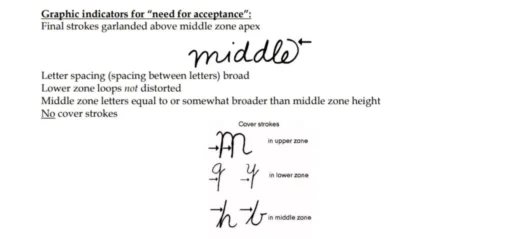As foldable technology gains popularity, it mirrors a deeper psychological concept: the unfolding nature of human personality. Just as a foldable smartphone changes its form to adapt to different uses, handwriting reveals the adaptability or rigidity of an individual’s traits.
Handwriting Traits: Unfolding Aggression
One of the critical traits analyzed is the abusive personality. Individuals with this trait tend to exhibit coarse and insulting language, often using verbal aggression as a defense mechanism for deep-seated insecurity. Their handwriting typically shows a combination of domineering, vanity, sarcasm, and aggression. These elements reveal a tendency to project inner turmoil onto others, seeking control to mask vulnerability. Just as foldable technology is designed to withstand multiple transformations, an abusive personality constantly shifts its outward expressions of aggression to maintain a perceived superiority.
Handwriting Traits in Need for Acceptance: A Folded Self
Conversely, some individuals experience an overwhelming need for acceptance, which is also evident in their handwriting. Such writers crave approval, often bending their personal desires to align with others’ expectations. Their writing reflects traits such as garlanded final strokes, broad letter spacing, and rightward slants—indicating a yearning for warmth and reassurance.

The metaphor of foldable technology is apt here; just as these devices conform to different modes to fit user preferences, individuals with a high need for acceptance mold themselves to gain validation from others. However, this adaptability can lead to emotional exhaustion, as they struggle to maintain a consistent self-image.
Handwriting Traits of Acquisitiveness: The Need to Possess and Control
Another significant trait is acquisitiveness, the compulsive desire to accumulate possessions, knowledge, or status. This trait often stems from deep-rooted insecurity, where material gains serve as a substitute for emotional stability. Handwriting features such as initial hooks, exaggerated lower loops, and compressed letter spacing indicate a strong need to hold onto resources. Like a foldable phone that stores and organizes data in multiple modes, acquisitive individuals seek to control their environment, fearing loss or instability.
The Parallel Between Handwriting and Foldable Technology
Both handwriting and foldable technology reveal how individuals navigate change. Some personalities exhibit flexibility, adapting to social expectations much like a foldable screen seamlessly shifts between functions. Others show rigidity, struggling to embrace new situations, similar to a device that remains in one mode despite its adaptable design.
By analyzing handwriting traits such as abusiveness, need for acceptance, and acquisitiveness, we gain deeper insights into human behavior. Just as the future of technology hinges on adaptability and transformation, personal growth depends on understanding and reshaping our internal tendencies. Handwriting analysis offers a unique lens through which we can unfold the hidden layers of personality, much like the screens we now carry in our pockets.
Handwriting analysis has helped to understand one another in a relationship and make the relationship can last. For a better relationship, try to learn handwriting analysis at KAROHS International School of Handwriting Analysis. Visit our website www.karohs.school and follow our instagram @karohs.school for more information about handwriting analysis.

